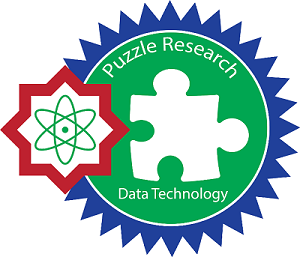ADDITIONAL MENU
Prediction of Successful Elearning Based on Activity Logs with Selection of Support Vector Machine based on Particle Swarm Optimization
Abstract
Prediction is a systematic estimate that identifies past and future information, we predict the success of learning with elearning based on a log of student activities. In our current study we use the Support vector machine (SVM) method which is comparable with Particle Swarm Optimization. It is known that SVM has a very good generalization that can solve a problem. however, some of the attributes in the data can reduce accuracy and add complexity to the Support Vector Machine (SVM) algorithm. It is necessary for existing tribute selection, therefore using the Particle swarm optimization (PSO) method is applied to the right attribute selection in determining the success of elearning learning based on student activity logs, because with the Swarm Optimization (PSO) method can increase accuracy in determining selection of attributes.
Full Text:
PDFReferences
Y. Kitanaka, “Predicting Learning Result of Learner in E-learning Course with Feature Selection Using SVM,” pp. 122–125, 2017.
Y. Bentley, H. Selassie, and A. Shegunshi, “Design and Evaluation of Student-Focused eLearning,” vol. 10, no. 1, pp. 1–12, 2012.
N. Arana-daniel, A. A. Gallegos, C. López-franco, A. Y. Alanís, J. Morales, and A. López-franco, “Support Vector Machines Trained with Evolutionary Algorithms Employing Kernel Adatron for Large Scale Classification of Protein Structures,” pp. 285–302, 2016.
S. Karamizadeh, S. M. Abdullah, and M. Halimi, “Advantage and Drawback of Support Vector Machine Functionality,” no. I4ct, pp. 63–65, 2014.
E. A. Zanaty, “Support Vector Machines ( SVMs ) versus Multilayer Perception ( MLP ) in data classification,” Egypt. Informatics J., vol. 13, no. 3, pp. 177–183, 2012.
C. Tu, L. Chuang, J. Chang, and C. Yang, “Feature Selection using PSO-SVM,” no. February, pp. 13–15, 2007.
C. Qi, Z. Zhou, Y. Sun, H. Song, and L. Hu, “Neurocomputing Feature selection and multiple kernel boosting framework based on PSO with mutation mechanism for hyperspectral classi fi cation,” Neurocomputing, 2016.
H. Shin and J. Paek, “Automatic Task Classification via Support Vector Machine and Crowdsourcing,” vol. 2018, 2018.
Patel, Savan. 2017. SVM (support Vextor Machine)-Theory. https://medium.com/machine-learning-101/chapter 2-svm-support-vector-machine-theory-f0812effc72. 20 Desember 2018.
http://www.iasri.res.in/ebook/FET/Chap%2016_SUPPORT%20VECTOR%20MACHINES.pdf. 20 Desember 2018
https://www.researchgate.net/profile/Imam_Cholissodin/publication/. 20 Desember 2018
DOI: http://dx.doi.org/10.24014/ijaidm.v2i1.6500
Refbacks
- There are currently no refbacks.
Office and Secretariat:
Big Data Research Centre
Puzzle Research Data Technology (Predatech)
Laboratory Building 1st Floor of Faculty of Science and Technology
UIN Sultan Syarif Kasim Riau
Jl. HR. Soebrantas KM. 18.5 No. 155 Pekanbaru Riau – 28293
Website: http://predatech.uin-suska.ac.id/ijaidm
Email: ijaidm@uin-suska.ac.id
e-Journal: http://ejournal.uin-suska.ac.id/index.php/ijaidm
Phone: 085275359942
Journal Indexing:
Google Scholar | ROAD | PKP Index | BASE | ESJI | General Impact Factor | Garuda | Moraref | One Search | Cite Factor | Crossref | WorldCat | Neliti | SINTA | Dimensions | ICI Index Copernicus
IJAIDM Stats










